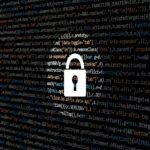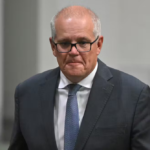Do only the wicked need fear government spying?
The Federal Government wants the controversial Metadata Retention bill passed as soon as possible. Leading up to an IQ2 debate on the subject, Simon Longstaff discusses what amount of liberty (if any) we should sacrifice in order to be safe.
What do you think about the claim that “if you’ve nothing to hide, then you’ve nothing to fear from surveillance”? Or, to put it another way, “only the wicked need fear our government spies”. Either way, the suggestion is clear – innocent people should support the extension of new powers to security and law enforcement agencies. At first glance it would seem to be plain common sense that the agencies devoted to public safety should have available to them a set of tools that at least match those available to antagonists bent on causing harm. As the Prime Minister put it the other day, we should not let ‘bad people’ treat us as ‘mugs’. Or, as an ex-pugilist, he might have said, we need to keep up our guard.
Given the Government’s appeal to ideas of public safety and the need to match the resources of those who threaten us, why is it that so many voices are raised in opposition to proposals such as those to do with the surveillance of ‘metadata’? It’s unlikely that critics are recklessly indifferent to the harm that can be done by criminals and terrorists. Nor is it the case that the challenge to government proposals comes from those blinded by their ideological opposition to anything done by Tony Abbott and his government. Rather, the concerns about increasing the power of the State arise from across the political spectrum – with some of the strongest criticism coming from people like Chris Berg – a thoughtful analyst with strong liberal (if not libertarian) credentials. Finally, it does not seem to me that the critics are the kind of people with ‘something to hide’. If anything, the bulk of the Government’s critics are rather conventional in outlook and law abiding in practice.
No, the fault lines in this debate are both deep and subtle. Deep – because ancient victories won for the cause of civil liberties are at risk of being forfeited for the sake of public safety. Subtle – because the intentions of those on both sides of the argument are essentially noble. Yes, there may be some political advantage to one side or another in how they position themselves in this debate. However, I think it fair to assume that each side is sincere in its convictions.
In the end, it boils down to this: what amount of liberty (if any) should we sacrifice in order to be safe? How do we make sense of the fact that we routinely give huge corporations access to our private information – but withhold less than that from our own governments? The answer to such questions is not to be found in a simple appeal to prudence. Whether we like it or not, there is a very real contest taking place in today’s world – with one side wanting to tear down the edifice of ideas and institutions produced by the liberal enlightenment and the other side seeking to defend a structure that has been the Western ideal for centuries. It is this context that makes the debate so potent – because there are many who fear that our society may inadvertently sacrifice, forever, its taste for freedom – preferring, instead, the promise of security. Critics of increased government surveillance fear that this would be to ourselves what terrorists and criminals can only dream of achieving.
This is not some kind of abstract or ‘intellectual’ issue for scholars and policy ‘wonks’. How we decide this debate has the potential to touch the lives of everyone. Just imagine if a bomb went off, killing our loved ones, in circumstances where new laws might have enabled the intelligence services to identify and prevent the tragedy. Such events happen nearly every day in other parts of the world – and the authors of terror would love to make such events a regular part of our lives. On the other hand, imagine that journalists lose their capacity to uncover examples of corrupt or incompetent government (because their ‘sources’ are no longer protected) and someone in your family is killed due to the failure of dodgy infrastructure (in my experience not far-fetched at all). In either case, the consequences are real and tragic. What this points to is the fact that there may not be an optimal solution to this problem. Indeed, the best we might be able to hope for is the ‘least bad’ option.
Some suggest that the only way to choose between equally bad outcomes is to go back to first principles – that is, to decide what is of fundamental importance for maintaining our way of life. Security? Liberty? How much of each? At what cost? You (we all) must decide.
At the next IQ2 debate in Sydney on Tuesday 31 March, broadcaster David Marr and author and technology researcher Dr Suelette Dreyfus will argue against the invasion of privacy and the new data retention laws with induce, while strategic advisor, ethicist and theologian Dr Rufus Black and a second speaker yet to be announced will explain why we need them.
Simon Longstaff is the Chair of the Intelligence Squared Debates in Sydney. He has a PhD in Philosophy from Cambridge and in 1991 he became the Executive Director of St James Ethics Centre.













Malcolm Crompton
March 14, 2015 at 11:22 pm
Is it just a matter of least worst trade off? We can do better
Simon – this is a very valuable contribution to the debate.
Yes we are having a national discussion about least worst, but sadly without too much nuance. Thank you for raising the debate considerably!
But there are also a couple more dimensions to be brought into the discussion.
The first is how do we call to account those who have the extra powers of surveillance? For all the reasons you note, western societies have always limited the powers of such organisations and also placed upon them additional accountabilities. We can argue about whether the accountabilities are sufficient, but the point is that society is trying to add back some safety. This is especially important when the addiional power can be exercised coercively or covertly or worse, both.
The second is simply planning for failure. An innocent party is going to get hurt one way or another, somewhere, sometime either by mistake, mischief or malevolence. It is inevitable. The pleas of the journalists about the impact on protection of their sources is an important example, but frankly only one among many – it is a pity that journalism isn't paying similar attention to all the other ways in which society and individuals can be hurt. So, what are the remedies and the pathways for recovery in such circumstances? If we don't get this right, we are plunging society into a de facto 'guilty until proven innocent' world.
The recent report by the Parliamentary Joint Committee on Intelligence and Security on the metadata legislation brought both these facets to light and recommended changes to the legislation accordingly. But I would argue that a lot more than that is required, both in terms of the law and sufficient funding of the regulators (IGIS, Ombudsman and Privacy Commissioner for starters) that they can actually do their job.
For more on this line of thinking, please see the recent blog on Open Forum "There's more to the national security debate than 'more powers please'".
Malcolm Crompton is Managing Director of Information Integrity Solutions (IIS), a company that works with public sector and private sector organisations all over the world to help them build customer trust through respect for the customer and their personal information. He was also foundation President of the International Association of Privacy Professionals, Australia New Zealand. In 2012 he received the Privacy Leadership award in Washington DC for his global contribution to the privacy profession. His Open Forum blog is at https://www.openforum.com.au/blogs/malcolm-crompton.